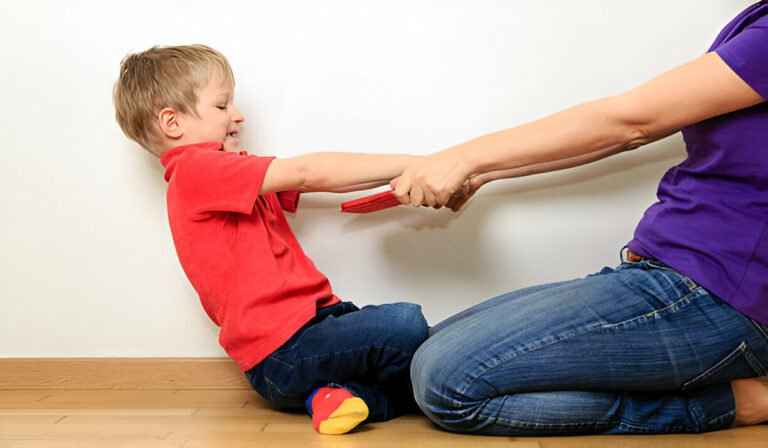10 simple parenting tips to be a better mom every day

Motherhood is one of life’s most rewarding journeys, yet it can also feel overwhelming. Between managing daily routines, nurturing your children’s development, and maintaining your own well-being, it’s easy to wonder if you’re doing enough. The good news? Being a great mom doesn’t require perfection—it requires intention, love, and a few practical strategies that can make all the difference.
Whether you’re a new mom finding your footing or an experienced parent looking to strengthen your approach, these 10 simple parenting tips will help you become the mother you want to be. Each tip is designed to be practical, achievable, and focused on what truly matters: building strong, loving relationships with your children while raising confident, capable kids.
1.Show Unconditional Love
Your love is the foundation of your child’s emotional security. When children know they are loved unconditionally—regardless of their mistakes, struggles, or differences—they develop the confidence to explore the world and become their authentic selves.
Unconditional love means loving your child whether they excel at sports, struggle with academics, or march to the beat of their own drum. It means being angry about their behavior while still affirming your love for them as a person. This type of love creates a safe space where children can take risks, make mistakes, and learn without fear of losing your approval.
Show unconditional love through your words (“I love you no matter what”), your actions (hugs during difficult moments), and your consistency (being there through both triumphs and challenges). When your child knows your love isn’t dependent on their performance, they can flourish into the person they’re meant to be.
2.Listen Actively

Active listening is one of the most powerful gifts you can give your child. It communicates that their thoughts, feelings, and experiences matter to you. When you stop what you’re doing to truly hear what your child is saying, you’re building trust and strengthening your connection.
Active listening goes beyond just hearing words. It involves making eye contact, asking follow-up questions, and reflecting back what you’ve heard. Instead of immediately offering solutions or rushing to the next task, take time to understand your child’s perspective.
Create opportunities for listening by establishing regular check-ins, taking advantage of car rides for conversation, and being present during daily activities. Remember that sometimes children need to process their thoughts out loud before they’re ready for advice. Your role is to provide a safe space for them to share their world with you.
3.Give Focused Attention
Quality time beats quantity every time. Children crave your undivided attention more than expensive toys or elaborate activities. When you give your child focused attention—even for just 10-15 minutes—you’re communicating that they are valuable and worth your time.
Focused attention means putting away your phone, turning off the TV, and being fully present with your child. Let them choose the activity, whether it’s playing with blocks, reading a book, or having a conversation. Follow their lead and engage in their world without distractions.
The benefits of focused attention extend far beyond the moment. Children who receive regular one-on-one time with their parents tend to be more cooperative, confident, and emotionally secure. They’re also less likely to act out for attention because their need for connection is being met consistently.
4.Establish Clear Rules
Children thrive with structure and clear expectations. Rules provide security and help kids understand how to navigate the world safely. The key is creating rules that are age-appropriate, consistent, and focused on what truly matters.
Start with a few essential rules that cover safety, respect, and responsibility. Explain the reasoning behind each rule so your child understands it’s not arbitrary but designed to keep them safe and help them grow. Be consistent in enforcing these boundaries—children need to know what to expect.
Remember that discipline is about teaching, not punishment. When rules are broken, focus on natural consequences and learning opportunities rather than harsh penalties. Clear rules create a framework within which children can explore their independence while staying safe.
5.Avoid Comparisons

Every child is unique, with their own strengths, challenges, and timeline for development. Comparing your child to siblings, classmates, or other children can damage their self-esteem and create unnecessary pressure.
Instead of saying, “Why can’t you be more like your sister?” try focusing on your child’s individual progress and strengths. Celebrate their personal victories, no matter how small. Help them understand that their worth isn’t determined by how they measure up to others but by their own efforts and character.
When you avoid comparisons, you give your child permission to be themselves. This builds confidence and helps them develop a healthy sense of self-worth that isn’t dependent on external validation.
6.Encourage New Experiences
Growth happens outside of comfort zones. Encouraging your child to try new activities, meet new people, and explore different interests helps them discover their passions and develop resilience.
Whether it’s trying a new sport, learning a musical instrument, or participating in a school play, new experiences teach children about their capabilities and preferences. They learn that it’s okay to be a beginner and that practice leads to improvement.
Support your child’s exploration by showing enthusiasm for their interests, even if they’re different from your own. Provide opportunities for them to try various activities without pressure to excel immediately. The goal is discovery and growth, not perfection.
7.Allow Mistakes
Mistakes are powerful teachers. When you rescue your child from every potential failure, you rob them of the opportunity to learn resilience, problem-solving skills, and personal responsibility.
Allowing mistakes doesn’t mean letting your child face dangerous situations. It means stepping back when they forget their homework, struggle with a friendship conflict, or make a poor choice with manageable consequences. These experiences teach valuable life lessons that can’t be learned through lectures alone.
When your child makes a mistake, resist the urge to immediately fix it. Instead, offer support and guidance as they navigate the consequences. Ask questions like, “What did you learn from this?” and “What might you do differently next time?” This approach builds character and confidence.
8.Protect Childhood Innocence

Children deserve to experience the wonder and joy of childhood without being burdened by adult worries and responsibilities. Protecting their innocence doesn’t mean sheltering them from reality, but rather ensuring they have the emotional space to grow and develop naturally.
Avoid involving children in adult problems like financial stress, marital conflicts, or extended family drama. These issues are beyond their ability to understand or solve and can create anxiety and insecurity.
Instead, focus on creating a safe, stable environment where your child can explore, play, and learn at their own pace. Encourage imagination, creativity, and curiosity. These are the building blocks of a healthy childhood that will serve them well throughout their lives.
9.Instill a Strong Work Ethic
Teaching children the value of hard work and responsibility prepares them for success in all areas of life. Start with age-appropriate chores and gradually increase responsibilities as they grow.
A strong work ethic isn’t just about completing tasks—it’s about taking pride in your efforts, persevering through challenges, and contributing to something bigger than yourself. When children participate in family responsibilities, they develop a sense of belonging and competence.
Praise effort over results. When your child works hard on a project, acknowledge their dedication regardless of the outcome. This teaches them that their worth isn’t tied to perfection but to their willingness to try and improve.
10.Prioritize Self-Care

You cannot pour from an empty cup. Taking care of yourself isn’t selfish—it’s essential for being the best mother you can be. When you prioritize your physical, emotional, and mental well-being, you model healthy habits for your children.
Self-care looks different for every mom. It might mean taking a short walk, reading a book, connecting with friends, or pursuing a hobby. The key is recognizing that your needs matter and making time for activities that recharge you.
Remember that your children are watching how you treat yourself. When you prioritize self-care, you teach them that it’s important to take care of their own well-being too. This creates a positive cycle that benefits the entire family.
Embrace Your Journey as a Mom
Motherhood isn’t about achieving perfection—it’s about showing up with love, intention, and grace for yourself and your children. Every day offers new opportunities to connect, learn, and grow together as a family.
These 10 simple parenting tips provide a foundation for building strong relationships with your children while nurturing their development into confident, capable individuals. Remember that progress, not perfection, is the goal. Some days will be easier than others, and that’s completely normal.
Trust your instincts, celebrate small victories, and remember that your love and effort make a profound difference in your child’s life. By implementing these strategies consistently and with patience, you’re not just becoming a better mom—you’re raising children who will carry these lessons with them throughout their lives.






